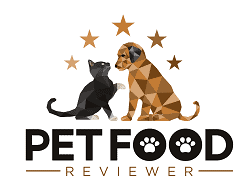Rawhide is one of the most popular types of dog treats. Not only do dogs love it, but it seems to last forever. Also, some pet owners claim that it can help keep a dog’s jaw healthy and maintain a mouthful of healthy teeth.
However, experts have raised concerns about the safety of this treat. Is rawhide a suitable treat for puppies? We’re about to find out.
What is Rawhide?
Many people are unfamiliar with the origin of Rawhide, but it is a by-product of the leather industry. Rawhide is usually created from the inner layers of cow or horsehide, but there are examples of other animal hides being used.
This hide is then cleaned and chemically treated; this stage in the process also ensures that there are no hairs remaining in the hide. Next, it is cut or ground up so that it can be easily pressed into a variety of shapes and sizes.
The shapes that Rawhide is pressed into are often designed to be appealing to dog owners and not dogs.
Some manufacturers also add flavors to make them more enticing to dogs. Some of the most popular flavors are Chicken, Beef, and Liver. Sadly, many of these flavors are artificial in nature and can cause adverse effects.
Rawhide that is produced or manufactured in the United States is surprisingly rare. In addition to being rare, it is likely far more expensive than Rawhide that is created outside of the United States.
Most Rawhide found in pet stores is produced in China. While being produced in China does not mean that it is dangerous or low-quality, there are some serious concerns about the quality of some products produced there as controls and regulations are less strict.
What are the Benefits of Rawhide for Puppies?
One of the benefits that Rawhide can offer to a puppy is related to teething pain. Puppies get teething pain just as human children do, and having something to chew on can help relieve that persistent pain.
A puppy’s jaws and teeth can also benefit from chewing on rawhide treats. Having something tough to chew on promotes the development of strong jaw muscles.
Rawhide can also act as a dental agent, as it rubs plaque build-up off of the dog’s teeth and gums. The removal of plaque in this manner can help keep your puppy’s teeth in excellent condition and prevent gum disease.
One of the best benefits of rawhide is the enjoyment and pleasure that it brings to most puppies. Many puppies will be occupied for hours once they receive their rawhide treat.
Others, however, savor their treats throughout days or weeks. It’s been reported by many dog owners that treats, such as rawhide help keep dogs and puppies engaged and busy.
A benefit that isn’t often considered is how rawhide can prevent puppies from chewing other objects. It’s a common occurrence to find that your canine friend has destroyed something expensive or sentimental. Providing them with something they can chew without consequence can help prevent this scenario.
What are the Risks of Rawhide for Puppies?
Rawhide is consumed in vast quantities worldwide by dogs of all ages. Most don’t see any adverse effects. Nevertheless, rawhide poses some risks, and it’s essential that you understand these risks before you purchase a rawhide snack.
The most common risk of rawhide is that it can cause choking. If a small piece breaks off and your puppy swallows it, problems can occur. The piece of Rawhide could become lodged in your puppy’s throat and cause them to have problems breathing.
Alternatively, it could create a blockage deeper in your puppy’s digestive system. This blockage could mean surgery is required to remove it if it does not come up on its own. If you notice that rawhide is getting small enough to swallow, you should take it away from your puppy to ensure his or her safety.
Some rawhides, especially those produced outside of the United States or Canada, contain toxic chemicals that are leftover from the leatherworking process.
In recent times, chemicals such as arsenic and formaldehyde have been found in rawhide. These chemicals can cause disastrous health problems if consumed. However, most rawhide products, despite this risk, are safe for consumption.
The final risk of rawhide is that it can cause some puppies to suffer from digestive irritation. This irritation happens when they are sensitive or allergic to one or more of the ingredients used in the manufacturing process.
An example of a symptom that your puppy could suffer from is diarrhea. If your puppy is sensitive, you may want to steer clear of rawhide treats.
Alternatives To RawHide?
There are a number of other treats that are similar to Rawhide but may not have the same risks associated. Some of the most popular of these are Raw Bones, Animal Ears, and Deer Antlers.
Most of these alternatives are commonly found at pet stores or at online retailers. If you wish to provide your dogs these types of treats, then we recommend purchasing them instead of creating them yourself. This is as treats such as bones can be dangerous if they have been cooked or stored incorrectly.




